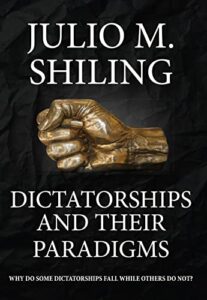The new U.S. Appropriations Bill pushes back against the rise of authoritarianism by investing $2.9 billion for democracy programs globally, including $315 million for the National Endowment for Democracy (NED). it also provides over $1.8 billion to promote a free and open Indo-Pacific and help counter the growing influence of the government of the People’s Republic of China.
2022 was a challenging year for democracy and those advocating for democracy globally, notes NED President and CEO Damon Wilson (above), who pays tribute to the courageous men and women working to support freedom around the world.
 The Ukraine War is setting one of the world’s most fearsome dictatorships on the defensive. That team effort must continue, Leon Fink writes for American Prospect. When the fighting stops, the West must ensure a generous settlement—and keep building a revitalized coalition of democracies.
The Ukraine War is setting one of the world’s most fearsome dictatorships on the defensive. That team effort must continue, Leon Fink writes for American Prospect. When the fighting stops, the West must ensure a generous settlement—and keep building a revitalized coalition of democracies.
Just in recent months, Peru’s president attempted to dissolve Congress, Argentina’s vice president was convicted of fraud, and Brazil’s incumbent president threatened not to leave office if he lost the upcoming election. Add the consolidation of dictatorships in Venezuela and Nicaragua and the Salvadoran president’s announcement that he will seek re-election despite constitutional limits, and it would seem that democracy is in trouble in Latin America, notes Andrés Velasco, a former presidential candidate and finance minister of Chile.
But a closer look reveals a different picture, he writes for Project Syndicate. The Peruvian president who tried to shut down Congress was peacefully removed by it. And while Brazil’s outgoing president spent the past six weeks sulking in his compound…. his chief aide let it be known that the transfer of power would proceed unimpeded. Similarly, though Argentina has plenty of other problems, Argentinians can be thankful that they at least have judges who can indict powerful government officials – something Russians, Chinese, or Saudis can only dream about, adds Velasco, Dean of the School of Public Policy at the London School of Economics and Political Science.
“Wittgenstein claimed at the beginning of the 20th century that if we could agree on the use of words, arguments would almost disappear. That reality is more evident in these times when the word ‘democracy’ no longer means the same thing to everyone,” notes Professor Guillermo Lousteau, former president of the Interamerican Institute for Democracy.
 Something similar happens with the concepts of dictatorship, totalitarianism, and the like. In Latin America today, the existence of “non-democratic” regimes is evident in those that do not even comply with the requirements of the Inter-American Democratic Charter, in terms of separation of powers, independence of the judiciary, transparency of elections, individual guarantees, and freedom of the press, he writes in a review of Julio M. Shiling’s “Dictatorships and Their Paradigms.”
Something similar happens with the concepts of dictatorship, totalitarianism, and the like. In Latin America today, the existence of “non-democratic” regimes is evident in those that do not even comply with the requirements of the Inter-American Democratic Charter, in terms of separation of powers, independence of the judiciary, transparency of elections, individual guarantees, and freedom of the press, he writes in a review of Julio M. Shiling’s “Dictatorships and Their Paradigms.”
Western societies are now linked to the dictatorships of the world by multiple capillaries., according to Sergei Guriev and Daniel Treisman, co-authors of Spin Dictators: The Changing Face of Tyranny in the 21st Century.
There is no safe way to opt out of the global system. A better goal is to make that system healthier and ensure it works in the West’s interest, they contend. This is a contest that can be won. Spin dictators would like their citizens to trust them and distrust the West. They thrive in a world of cynicism and relativism. But the West has something they do not: a powerful idea around which it can unite, the idea of liberal democracy.

National Endowment for Democracy (NED)
The free flow of money has enabled kleptocracy and corrupt influence; the growth of trade has not made dictatorships more like democracies but allowed autocrats to weaponize globalization, Peter Pomeranzev writes for TIME:
Instead of internet technology bringing people across the globe closer to democracy, any aspiring autocrat can shop for what have been called authoritarian services, such as surveillance technologies from China or Pegasus spyware from Israel, that let them monitor their citizens to an unprecedented extent. Chris Walker, vice president for analysis at the National Endowment for Democracy, calls these transnational tactics “sharp power,” as opposed to the idea of states having soft power, which makes them attractive to foreign populations. These days the aim is to be feared, not loved.
As Zelensky visits DC, I put Russia’s invasion in context of the larger clash between networked authoritarians and democratic solidarity. This war is the front line in the great global struggle of the 21st century. It’s not the Cold War redux, it’s new…https://t.co/CyhTvofZyA
— peter pomerantsev (@peterpomeranzev) December 21, 2022







